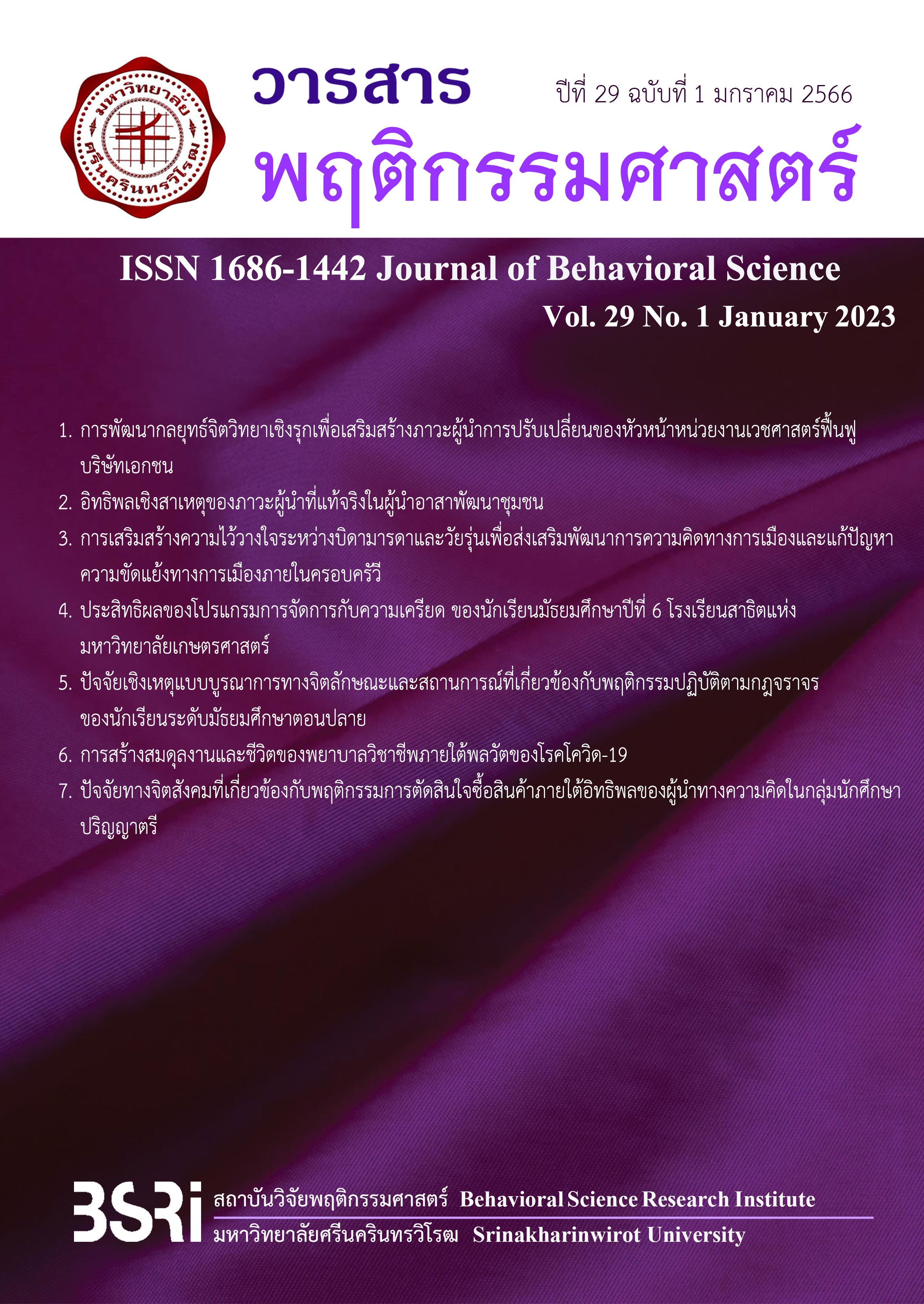Psychological and Situational Integrated Causal Factors Related to Traffic Rule Compliance Behavior of High School Students
Keywords:
Integrated Causal Factors, Traffic Rule Compliance Behavior, High School StudentsAbstract
This study is a comparative study using the interactionism model. It aims to identify significant indicators and predict the volume of psychological states and situational factors related to traffic rule compliance behavior. The study’s sampling group is 1,107 high school students, selected by multi-stage sampling. The study found that road safety behavior control efficacy variables were paired with the highest correlation coefficient and significantly positively correlated with traffic rule compliance behavior. (r = 0.567, p < .01). The multiple regression analysis found that psychological traits, psychological states, and situational factors can predict the traffic rule compliance behavior of the sampling group by 54.92%. The best predicting factors are the collectivism variable and the influence of people around variable. The high-risk groups include grade 11 (junior of high school students), a group of students using bicycles, and a group of students who understand only some of the traffic rules. The results of this research pointed out guidelines for the development of traffic rules compliance behavior.
Downloads
Downloads
Published
How to Cite
Issue
Section
License
Copyright (c) 2023 Warasan Phuettikammasat

This work is licensed under a Creative Commons Attribution-NonCommercial-NoDerivatives 4.0 International License.
Behavioral Science Research Institute, SWU
114 Sukhumvit 23, Bangkok 10110, Thailand.
Tel.02-649-5000 # 17600



